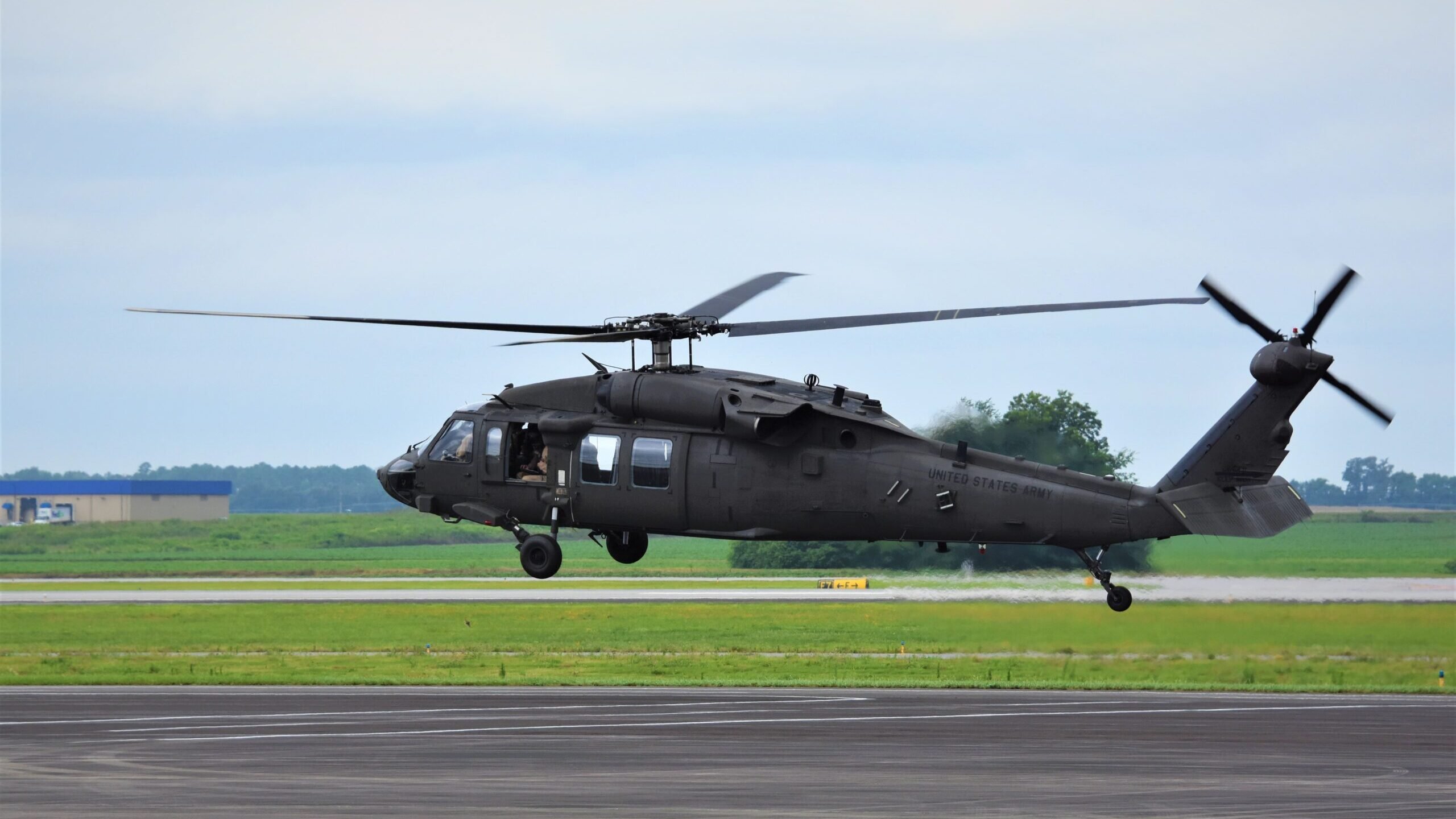UH 60 Helicopter Overview: Every Little Thing You Need to Know
UH 60 Helicopter Overview: Every Little Thing You Need to Know
Blog Article
The Influence of Lasting Practices on the Future of Airplane Procedures and Emissions Reduction
As the aviation sector deals with boosting examination over its ecological effect, the adoption of sustainable practices emerges as an essential pathway towards future airplane procedures and emissions decrease. Technologies in lasting air travel fuels and improvements in crossbreed propulsion modern technologies stand at the center of this improvement, appealing substantial decreases in greenhouse gas exhausts.

Overview of Lasting Practices
Lasting methods in airplane procedures incorporate a series of strategies targeted at decreasing ecological impact while keeping operational efficiency. These practices are necessary in the aviation industry's commitment to lessening its carbon footprint and sticking to worldwide environmental requirements. Secret efforts include optimizing trip paths to lower fuel consumption, boosting maintenance procedures to make certain aircraft run at peak efficiency, and applying innovative technologies such as winglets and light-weight materials that improve aerodynamics.

Training and engaging staff on sustainability methods likewise play a vital function, cultivating a society of environmental obligation within organizations. In general, the assimilation of these lasting techniques not only assists reduce exhausts but likewise enhances the lasting stability of the aviation market, ensuring it satisfies the needs of both consumers and regulatory bodies while adding to worldwide sustainability objectives.
Ingenious Gas Alternatives
Numerous innovative gas choices are emerging as pivotal remedies to lower the aviation sector's reliance on standard nonrenewable fuel sources. Amongst these alternatives, Sustainable Aviation Fuels (SAFs) have acquired substantial focus due to their prospective to lower lifecycle greenhouse gas discharges by as much as 80% contrasted to conventional jet gas. SAFs are originated from various feedstocks, consisting of waste oils, farming residues, and also algae, making them a functional alternative for the sector.
An additional promising alternative is hydrogen fuel, which, when made use of in gas cells, creates just water vapor as a result. This zero-emission prospective presents a substantial possibility for decarbonizing flight operations, particularly for short-haul flights and regional airplane. In addition, electrical propulsion systems are being discovered, leveraging battery modern technology to power airplane. While existing battery capability limits range and payload, recurring innovations might soon provide electrical flights feasible for specific applications - uh 60.
Last but not least, biofuels originated from biomass are being explored, supplying an eco-friendly option that can be combined with conventional fuels. Collectively, these cutting-edge gas alternatives stand for an essential action towards accomplishing a sustainable air travel environment, straightening with international discharges decrease targets and improving the industry's environmental stewardship.
Technical Advancements in Air Travel

Just how can technical improvements improve the future of air travel? Advancements such as hybrid and electrical propulsion systems are at the forefront, appealing substantial decreases in fuel usage and greenhouse gas exhausts.
In addition, the application of innovative products, such as light-weight composites, adds to enhanced the rules of aerodynamics go to this website and fuel efficiency. The use of expert system and machine understanding in trip operations optimizes route planning and decreases gas burn by making it possible for real-time adjustments based upon weather condition and website traffic conditions. In addition, the growth of autonomous and from another location piloted airplane systems stands to revolutionize cargo and traveler transport, possibly increasing performance while decreasing human mistake.
In addition, lasting aviation technologies, including advanced air website traffic administration systems, can improve procedures and decrease blockage, bring about lower discharges throughout flight. These developments jointly represent a paradigm shift in aeronautics, assuring a future where sustainability and operational performance go right here are intertwined, thereby supporting the sector's dedication to lowering its environmental influence.

Regulatory Structure and Conformity
In light of the growing emphasis on ecological stewardship within the aeronautics field, the regulative framework regulating airplane operations is progressing to advertise sustainable techniques. Regulatory bodies, such as the International Civil Aviation Company (ICAO) and different nationwide air travel authorities, are presenting rigorous guidelines focused on reducing discharges and enhancing operational performance.
These guidelines often consist of the fostering of Lasting Aeronautics Gas (SAF), which has actually been identified as a vital part in accomplishing lower carbon footprints. Furthermore, compliance with these guidelines requires airline companies to carry out operational methods and advanced innovations, such as optimized flight paths and boosted air web traffic management, to reduce gas intake.
In addition, the enforcement of emissions trading schemes and carbon offsetting campaigns is coming to be significantly prevalent, engaging airline companies to monitor and report their exhausts accurately. Non-compliance can lead to substantial fines, thus pushing drivers to prioritize sustainability in their company models.
Eventually, the advancing regulatory landscape not only drives development and financial investment in green innovations yet additionally cultivates a society of accountability within the air travel sector. As these structures remain to develop, the concentrate on sustainable methods will be integral to accomplishing the market's lasting environmental goals.
Future Fads in Aircraft Procedures
As the air travel industry adapts to a significantly stringent regulative atmosphere, future patterns in aircraft operations are readied to focus on ingenious services that additionally boost sustainability and effectiveness - uh 60. Trick advancements will likely consist of the fostering of sophisticated air website traffic administration systems, which make use of real-time information and expert system to enhance trip courses, reducing fuel consumption and exhausts
Another considerable trend is the raised assimilation of sustainable air travel fuels (SAFs) These options to conventional jet gas, stemmed from eco-friendly sources, can significantly decrease lifecycle greenhouse gas exhausts. The market's commitment to SAFs will likely speed up as airline companies work together with gas manufacturers to make sure accessibility and cost-effectiveness.
In addition, the press helpful site in the direction of electrification and crossbreed propulsion systems is getting energy. Arising aircraft layouts will certainly include these innovations, supplying quieter and extra effective procedures, particularly for short-haul flights.
Verdict
In conclusion, the combination of lasting techniques in aircraft procedures holds significant potential for emissions decrease and enhanced performance. The adoption of sustainable aviation gas, coupled with improvements in electrical and hybrid propulsion systems, is necessary for lessening lifecycle greenhouse gas discharges. Additionally, maximizing trip paths and welcoming ingenious innovations add to a quieter and extra eco friendly aeronautics field. Jointly, these efforts line up with global sustainability goals and lead the means for a greener future in air travel.
Innovations in lasting aviation fuels and innovations in hybrid propulsion innovations stand at the leading edge of this makeover, appealing significant decreases in greenhouse gas discharges.Many cutting-edge gas alternatives are emerging as pivotal solutions to lower the air travel industry's dependence on conventional fossil fuels - uh 60. Among these alternatives, Sustainable Air travel Fuels (SAFs) have actually obtained considerable attention due to their potential to lower lifecycle greenhouse gas discharges by up to 80% compared to standard jet gas.An additional significant pattern is the enhanced combination of lasting air travel gas (SAFs) The fostering of sustainable aeronautics gas, paired with improvements in hybrid and electric propulsion systems, is necessary for minimizing lifecycle greenhouse gas emissions
Report this page